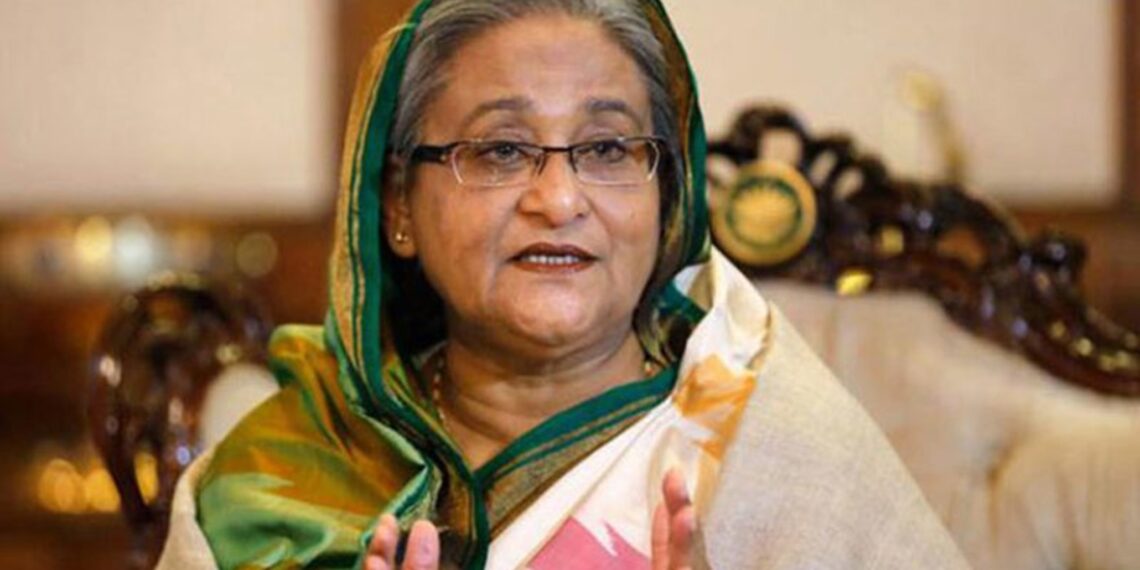In a scathing critique of Bangladesh’s interim government, deposed Prime Minister Sheikh Hasina has accused Chief Adviser Muhammad Yunus of leading a “fascist regime” that enables terrorists and fundamentalists to operate unchecked.
Speaking to overseas Awami League supporters via a virtual address from London, Hasina pledged to bring Yunus and his allies to justice under Bangladeshi law.
Hasina expressed alarm over the rise in violence against religious minorities since her government’s ousting in August.
“Attacks on minorities and places of worship of Hindus, Christians, and Buddhists have been rampant under this regime. Jamaat and terrorist elements have been given free rein,” she said.
Her remarks were shared on social media by the Bangladesh Awami League and Bangladesh Students’ League, coinciding with Indian Foreign Secretary Vikram Misri’s visit to Dhaka.
Misri raised concerns over the safety of minorities, citing “regrettable incidents of attacks on cultural, religious, and diplomatic properties.
The anti-government Monsoon Revolution, driven by the youth-led “Students Against Discrimination” movement, culminated in Hasina’s resignation after 16 years in power.
Forced to flee the country on August 5, she currently resides in India.
Describing the upheaval as a conspiracy masterminded by Yunus, Hasina alleged that the unrest involved targeted killings of students and law enforcement officers, alongside widespread arson and violence.
Highlighting incidents of judicial overreach, Hasina condemned the arrest of Hindu monk Chinmoy Krishna Das, a vocal advocate for minority rights.
“This is a blatant suppression of dissent. The legal system is being weaponized to silence opposition,” she said.
Das’s arrest and subsequent denial of bail have intensified concerns over the persecution of Hindus under Yunus’s regime.
Hasina also accused Yunus of financial irregularities linked to his organization, Grameen Bank, and criticized the Anti-Corruption Commission for overlooking these allegations.
“While they baselessly accuse my government of corruption, Yunus’s questionable activities remain uninvestigated,” she remarked.
Accusing the interim government of orchestrating a systematic campaign to destroy the Awami League’s influence, Hasina claimed that over a thousand party leaders and workers have been killed since August.
“Our leaders have been targeted, their homes looted, and businesses destroyed. This is a deliberate attempt to annihilate the Awami League,” she said.
Despite the bleak political landscape, Hasina expressed optimism for Bangladesh’s future.
“This dark chapter will not last forever. Justice will prevail, and a brighter dawn will break over our nation,” she assured her supporters.
Hasina’s pointed criticism underscores the deepening crisis in Bangladesh, as the Yunus-led administration faces mounting scrutiny over its governance and treatment of minorities.















